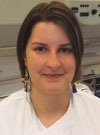News
Issue: Biogeography
27 August 2013 article

Digitally speaking
We are very excited to announce that both Microbe Post (blog) and Microbe Talk (podcast) have returned – it’s true, they have been away a while longer than we had anticipated – but our newly rejuvenated blog and podcast are back online. We hope you like the slightly rejigged format! See Media Update for how you can get involved.
We are also celebrating the birth of a brand new blog from the SGM’s publishing team. This blog is where you can stay connected with what’s happening at SGM Publishing. Also, the wider issues affecting publishers and researchers will be discussed such as open access, best practice for submitting a manuscript and hot research topics.
News of members
Congratulations to the following SGM members.
Professors Judith Armitage and Mervyn Bibb who were recently elected to the Fellowship of the Royal Society. Fellows are elected for their contribution to science, both in fundamental research resulting in greater understanding and also in leading and directing scientific and technological progress in industry and research establishments.
Professor Gurdyal Besra who has been elected to the Fellowship of the Academy of Medical Sciences. Fellowship of the Academy is based on exceptional contributions to the medical sciences either in the form of original discovery or of sustained contributions to scholarship.
Former SGM President Professor Robin Weiss has been elected a Foreign Associate of the US National Academy of Sciences. Members are elected to the National Academy of Sciences in recognition of their distinguished and continuing achievements in original research. Membership is a widely accepted mark of excellence in science.
Former SGM President Professor Hugh Pennington who was awarded a CBE for his services to microbiology and food hygiene in the Queen’s Birthday Honours this year.
Deaths
We regret to announce the death of Dr J.W. Lightbown, member since 1949, who passed away on 11 April 2013. We are also sad to announce the death of Professor Sir Kenneth Murray. His obituary is in this publication.
Annual General Meeting
The Annual General Meeting of the Microbiology Society will be held on Monday 2 September 2013 at 12:50 in the Chichester Lecture Theatre, University of Sussex.
AGENDA
- Introduction by the President
- Minutes of the 2012 Annual General Meeting
- Matters arising from the Minutes
- Announcement of the new Treasurer
- Report of the Treasurer
(a) Receiving of the Annual Accounts
(b) Appointment of Auditor
(c) Approval of membership subscription rates - New Members of Council, Committees and Divisions 2013
- Any other business
Supporting papers can be downloaded from the SGM website.
Dr Simon Festing, Company Secretary
Prize Lectureships
FRED GRIFFITH PRIZE LECTURE
Awarded biennially in recognition of long and distinguished service in any area of microbiology.

2013 PRIZE AWARDED TO NEIL A.R. GOW THE UNIVERSITY OF ABERDEEN
BREAKING THE MOULD IN MEDICAL MYCOLOGY
Professor Gow graduated with a BSc from Edinburgh University in 1979 and a PhD from Aberdeen University. He was a research fellow in Denver, before returning to Aberdeen as a faculty member in 1984. He is a founding member of the Aberdeen Fungal Group and contributed to building this group to its current status as one of the largest centres of excellence for medical mycology. Professor Gow currently holds the post of Director of Research and Commercialisation for the College of Life Sciences and Medicine. Under his direction this group has recently been awarded a Wellcome Trust Strategic Award to coordinate research and training activity and build capacity in the field of medical mycology and fungal immunology across the UK and in developing countries. He is a fellow of the Society of Biology, the Royal Society of Edinburgh and the American Association of Microbiologists, and is a former President of the British Mycological Society and current President-Elect of the international Society for Human and Animal Mycology (ISHAM). He has, in recent years, helped to coordinate the SGM Eukaryotic Division and was a past member of Council and Editor of the SGM’s journal Microbiology. He recently stepped down as Editor-in-Chief of Fungal Genetics and Biology.
Professor Gow’s primary research has focused on: (i) the molecular genetics of cell wall biosynthesis in pathogenic fungi, in particular the genetics of glycosylation and the fungus–host interaction in relation to immune recognition and function; (ii) the genetics of chitin synthesis and the response to antifungal agents; (iii) directional growth responses of fungal cells; (iv) the virulence properties of medically important fungal species; (v) the evolution, genome biology and genotyping of Candida species. He has published over 300 research papers and reviews in these areas.
OUTREACH PRIZE LECTURE (SPONSORED BY YAKULT)
Awarded annually to a microbiologist who has engaged in high-quality outreach activities during the last 2–5 years. 2013 Prize awarded jointly to:

HELEN L. BROWN INSTITUTE OF FOOD RESEARCH, NORWICH
A ROUGH GUIDE TO OUTREACH
Following the completion of her BSc in Bioarchaeology at Bradford University in 2003, Helen began working at Covance Laboratories Ltd. During the 6 years she spent with the company she worked in both the Immunoassay and Biosafety departments. While working she also completed a part-time MSc in the Biological Basis of Disease at Sheffield Hallam University. In early 2011, she began a PhD project at the Institute of Food Research, Norwich, funded by the Biotechnology and Biological Services Research Council (BBSRC), with additional Council for Advancement and Support of Education (CASE) funding from Campden BRI. Her research focuses on biofilm formation in the food-borne pathogen Campylobacter jejuni and how this assists its food chain transmission. Alongside her PhD studies she enjoys taking part in various outreach activities. She is a member of STEMnet and Norfolk’s Teacher Scientist Network. Most of her outreach work takes place in local schools, although she has spoken about her research at several events for both general public and teacher audiences.

JAMES REDFERN MANCHESTER METROPOLITAN UNIVERSITY
THE GOOD, THE BAD AND THE ALGAE: A PUBLIC ENGAGEMENT EVENT
James graduated from Manchester Metropolitan University (MMU) in 2010 with a degree in Biology. For his second year, he chose to study in the USA at South Dakota State University where his passion for microbiology began. On his return to the UK, he became a member of SGM and took his first steps into the world of science communication, helping the Science Council at the Big Bang Science Fair. Shortly after graduating, he began his PhD at MMU in practical microbiology education resource development. Three years on, he has successfully developed, written, trialled, evaluated and published a series of practical activities in order to promote the use of microbiology in the secondary school classroom. Over this time, he has been involved in a series of science communication events and activities, ranging from drop-in sessions at national science festivals, to workshops at university family fun days.
2014 SGM Journals pricing now available
2014 subscription prices for Microbiology, Journal of General Virology, Journal of Medical Microbiology and International Journal of Systematic and Evolutionary Microbiology are now available on the SGM website. Please encourage your librarian to subscribe, ensuring that you have online access to the high-quality research published by the Society.
Synthbio
The July issue of the SGM journal Microbiology contains a special section dedicated to synthetic biology – a field that applies engineering principles, such as mathematical modelling or modularisation, to biological research. Although in its infancy, synthetic biology offers researchers the opportunity to understand how biological systems work by piecing them together from their constituent parts, and may allow scientists to design organisms that perform a bespoke function. For more information on the safety mechanisms that can prevent synthetic organisms from escaping or sharing their DNA, listen to July’s Microbe Talk where Benjamin Thompson, SGM’s Senior Public Relations Officer, talks to researchers from Imperial College London who are interested in this field.
Cheltenham Literature Festival
4–13 October 2013
The SGM is pleased to be sponsoring Cheltenham Literature Festival – where three members – Professor Laura Piddock, Professor Joanna Verran and Dr Thorunn Helgason are taking part in three panel discussions with a distinctively microbiological flavour. See programme below:
WOUNDED – Mon 7 October. In this fascinating event battlefront medical care available to soldiers in WWI is compared to that offered today. The panel – medical historian Emily Mayhew, author of Wounded, Laura Piddock and Colonel Alan Kay, a serving military surgeon at Camp Bastion, discuss the challenges faced by surgeons in WWI, explore how treatment in war zones has developed over the last 100 years and give a rare insight into the working of operational theatres today.
DIRT: THE FILTHY REALITY OF EVERYDAY LIFE – Tue 8 October. From Dickens’ Victorian workhouses to the ‘clean spa air’ of Jane Austen’s Regency Bath, dirt and cleanliness play a fascinating role in 19th Century fiction. Joanna Verran, author Catharine Arnold (Underworld London) and historian Virginia Smith discuss how dirt and hygiene feature in writing of this period and explore how the dirty and the clean shape our view of 19th Century history in cities and spa towns alike.
BEES: FROM HONEY TO HIVE – Wed 9 October. Beekeeper Steve Benbow, author of The Urban Beekeeper, microbial ecologist Dr Thorunn Helgason and broadcaster and bee enthusiast Bill Turnbull, author of The Bad Beekeepers Club explore our enduring fascination with bees. They will be looking at how the bee has shaped culture and folklore, discussing the environmental and scientific challenges faced by contemporary beekeepers and examining the medicinal properties of honey, as well as celebrating the art of beekeeping itself.
Media update

Hello all, it’s a great pleasure to be introducing myself to you. I’m Benjamin, the Society’s new Senior Public Relations Officer; it’s my job to make sure the word gets out about microbiology, the Society, its members and the amazing things that we do. I moved to the SGM from the Wellcome Trust, where I worked as a science writer. As many of you are aware, it’s a very exciting time for the Society: we’re moving offices, and we’ve got a shiny new website. This has been a good opportunity for us to relaunch Microbe Post, our blog, and Microbe Talk, our podcast.
want to use them to highlight some of the great stuff that’s happening in our field. But I need your help – there’s so much going on in labs across the country/world that I don’t know about. If you hear of something that would make a good story, please let me know! The more that people hear about what we do, the better it is for the Society and for microbiology as a whole.
Benjamin Thompson, SGM. Email [email protected].
NIHR Themed Call: preventing the development and spread of antimicrobial resistance
The NIHR Antimicrobial Resistance Themed Call is now open and receiving applications for research funding. This call is for research into the evaluation of public health measures, health care interventions and health services to reduce the development and spread of antimicrobial resistance and consequent morbidity.
Upcoming grant deadlines
PRESIDENT’S FUND FOR RESEARCH VISIT GRANTS
Grants of up to £3,000 to support early-career microbiologists to carry out a short visit to another laboratory to carry out a defined piece of work.
ELECTIVE GRANTS
To enable medical, dental and veterinary science undergraduates to work on microbiological research projects during their elective/extra mural studies.
INFECTION TRAINING SUPPORT GRANTS
To support small lab-based microbiology projects carried out during either foundation or speciality postgraduate medical training.
INTERNATIONAL DEVELOPMENT FUND
To support knowledge transfer and capacity building in countries with economies defined by the World Bank as low- or lower-middle-income.
WATANABE BOOK FUND
Funds to acquire books, or journals relating to microbiology for members who are permanently resident in a country with an economy defined by the World Bank as low- or lower-middle-income.
